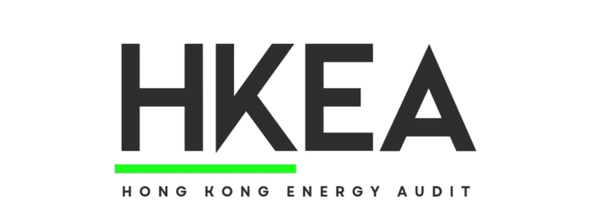
Requirements for taking the IMechE CEng
What are the conditions and assessment criteria for taking the CEng (Chartered Engineer) exam through IMechE (Institution of Mechanical Engineers)? To become a CEng chartered engineer in Hong Kong, you need to pass the British Engineering Council (Engineering Council) institute in Hong Kong or other recognized institutions. IMechE has a high recognition in the Hong Kong building services/equipment industry, so many engineering personnel Will apply for CEng at IMechE and become a member of IMechE.
The British Engineering Council is the regulatory body for the British engineering industry. It is responsible for the registration of Chartered Engineers, Incorporated Engineers and Engineering Technicians, and provides services for students, engineers, employers and schools. Registration Guidelines. To obtain this qualification, engineers in Hong Kong must now apply through the British Engineering Council and their affiliated institutions in Hong Kong that are regulated by it. IMechE, the British Institution of Mechanical Engineers, is one of the most recognized options.

IMechE’s assessment details for Chartered Engineers:
Basic application requirements:
* Your academic knowledge will be at a master's degree level
*Bachelor's and Master's degrees in relevant disciplines
*Bachelor's degree plus part-time study through short courses, private study, part-time study or other means
If you fail to meet the above academic requirements
If you started your bachelor's degree in 1999 or later, you may need to complete a period of further coursework to bring your qualifications to a 'baseline level' to meet the professional requirements for a Certified Engineer (CEng), including
* Conduct distance learning
* Follow a personal further study plan
*Earn a work-based qualification
* Join an approved continuing learning company program
* Study a recognized academic qualification
Preparation and process for applying for CEng:
1. Check applicant qualifications
-- IMechE is required to check applicants' academic profiles to ensure they meet registration benchmarks. Applicants can check your eligibility using our eligibility checker or contact our membership team.
Click here to view the IMechE qualification checker
2. Fill in the application form
-- If the applicant has confirmed that they meet the academic requirements to register as a Chartered Engineer using IMechE's eligibility checker, and has not yet registered with the Engineering Council as a CEng, the applicant can apply online or submit a paper application (editable PDF). Please read IMechE’s Chartered Engineer Application Guide.
Click here to view Chartered Engineer Application Guide
-- If the applicant joins IMechE's Monitored Professional Development Scheme (MPDS), the applicant should submit the application through the MPDS channel.
3. Obtain the support of at least two recommenders
-- You need two referees to agree to sponsor your application and to sign your application.
CEng applicants must be sponsored by a Chartered Engineer. Recommenders may be registered with any professional engineering body listed by the Engineering Council; they do not have to be one of the members of IMechE. The applicant's second referee may be another registered engineer or the applicant's line manager. Applicants' recommenders cannot be immediate family members.
4. Submit your application
-- After completing and proofreading the application form, applicants need to submit it to IMechE along with all application fees and required supporting documents.
-- If the applicant participates in IMechE's Monitored Professional Development Scheme (MPDS), the applicant should submit the application through the MPDS channel.
5. Professional review interview
-- Once IMechE has processed your PRR, IMechE will invite the applicant to attend a professional review interview. Applicants can choose their preferred interview location on the application form, virtual interview, face-to-face interview or international interview.
--Applicants need to contact IMechE to confirm whether they can attend the interview, otherwise the application may be delayed.
--The professional review interview is a mandatory part of the membership admission process. Every Chartered Engineer, regardless of discipline, must attend an interview.
--The interviewer will focus on the applicant's recent relevant experience. They will base their judgment solely on the information the applicant provides in the application and your performance during the interview.
--The interview will take approximately 45 minutes.
6. Once you complete your interview, the applicant's evaluator will make one of two recommendations: opt in or not
-- If successful, the applicant will receive a letter from IMechE's President and CEO and a certificate confirming the applicant's achievement, and the applicant's name will then be forwarded to the Engineering Committee for registration.
-- If the applicant's application is unsuccessful, IMechE will write to the applicant and explain the reasons for the decision. Applicants will also receive some guidance on how to address the issues raised in order to resubmit your essay later. Any applicant may request a copy of interview documents, scores and feedback. IMechE has arbitration and appeal procedures, and applicants who are not satisfied with the procedure can appeal within a given time.

IMechE assessment standards for (Chartered Engineer) chartered engineers
Applicants will be expected to demonstrate competency and commitment in each area (A1-E5), consistent with their specific role. They will be more competent in some areas than others, however they will need to demonstrate at least an understanding of and familiarity with the key competencies in all areas and demonstrate and demonstrate a higher level of competency in areas critical to their particular role. or support .
A Knowledge and understanding
- A1 Maintain and extend a solid theoretical approach to enable you to develop your specific role.
Prove/Support
* Learn and develop new engineering knowledge in a different industry or role.
* Understand current and emerging technologies and technical best practices within your area of expertise.
* Develop a broader and deeper knowledge base through research and experimentation.
* Learn and develop new engineering theories and techniques in the workplace.
- A2 Develop technical solutions to unusual or challenging problems, leveraging your knowledge and understanding, and/or handle complex technical problems or situations with significant risk.
Prove/Support
* Conduct technical research and development.
* Develop new designs, processes or systems based on new or evolving technologies.
* Conduct complex and/or non-standard technical analysis.
* Develop solutions involving complex or multidisciplinary technologies.
* Develop and evaluate continuous improvement systems.
* Develop solutions in safety-critical industries or applications.
B Design, develop and solve engineering problems
- B1 Actively participate in the identification and definition of project needs, issues and opportunities.
Prove/Support
*Identifies projects or technical improvements to products, processes or systems.
* Prepare specifications, taking into account functional and other requirements.
* Establish user needs.
* Review specifications and bid documents to identify technical issues and potential improvements.
* Conduct technical risk analysis and identify mitigation measures.
* Consider and implement emerging technologies.
- B2 Determine appropriate investigations and studies required to complete engineering tasks and conduct these activities effectively.
Prove/Support
* Identify and agree on appropriate research methods.
* Investigate technical problems, identify potential solutions and determine factors needed to compare them.
* Identify and conduct physical tests or experiments, analyze and evaluate results.
* Conduct technical simulations or analyses.
* Prepare, present and agree design proposals, conduct appropriate risk analysis and consider cost, quality, safety, reliability, accessibility, appearance, suitability, security (including cyber security), intellectual property constraints and opportunities, and environmental impacts.
- B3 Implement engineering tasks and evaluate the effectiveness of engineering solutions.
Prove/Support
* Ensure that the application of the design produces appropriate practical results.
* Implement design solutions that consider key constraints, including appropriate attention to safety, sustainability and disposal or decommissioning.
* Identify and implement lessons learned.
* Evaluate existing designs or processes to identify deficiencies or potential improvements, including risk, safety and life cycle considerations.
* Proactively learn from feedback on results to improve future design solutions and establish best practices.
C Responsibility, management and leadership
- C1 Plans the efforts and resources required to implement major engineering tasks or projects.
Prove/Support
* Prepare budget and related work plan for project or task.
* Systematically review factors affecting project implementation, including safety, sustainability and disposal or decommissioning considerations.
* Conduct task or project risk assessments and identify mitigating measures.
* Lead the preparation and agreement of the implementation plan and approach statement.
* Negotiate and enter into arrangements with customers, colleagues, contractors and other stakeholders, including regulatory agencies.
* Ensure information flow is appropriate and effective.
- C2 Manage (organize, direct and control), orchestrate or schedule, budget and resource elements of major engineering tasks or projects.
Prove/Support
* Operate or define appropriate management systems, including risk registers and emergency response systems.
* Manage the balance between quality, cost and time.
* Monitor progress and associated costs and cost forecasts, taking appropriate action when needed.
* Establish and maintain appropriate quality standards within legal and regulatory requirements.
* Effectively interface with customers, contractors and other stakeholders.
- C3 Leads a team or technical specialty and assists others in meeting changing technical and management needs.
Prove/Support
* Negotiate goals and work plans with teams and individuals.
* Strengthen the team's commitment to professional standards.
* Lead and support team and individual development.
* Evaluate team and individual performance and provide feedback.
* Seek input from other teams or experts when needed and manage relationships.
* Provide expertise, guidance and input to the engineering team, engineers, customers, management and relevant stakeholders in your area of expertise.
* Develop and deliver taught modules at Masters level, or lead university research projects.
- C4 Promote continuous quality improvement and promote best practice.
Prove/Support
* Promote quality within the organization and its network of customers and suppliers.
* Develop and maintain operations to comply with quality standards such as ISO 9000, EQFM.
* Support or guide project evaluations and make recommendations for improvements.
* Implement and share the results of lessons learned.
D Communication and interpersonal skills
- D1 Communicate effectively with others at all levels, using English.
Prove/Support
* Prepare reports, drawings, specifications and other documents on complex matters.
* Lead, moderate, participate in and record meetings and discussions.
* Exchange information and provide advice to technical and non-technical colleagues.
* Participate in or interact with professional networks.
- D2 Clearly present and discuss proposals, reasons and conclusions.
Prove/Support
* Serve as an author on scientific papers or articles.
* Prepare and deliver presentations on strategic matters.
* Prepare bids, proposals or studies.
* Identify, negotiate and guide work to achieve shared goals.
- D3 Demonstrate personal and social skills and awareness of diversity and inclusion issues.
Prove/Support
* Know and manage your emotions, strengths and weaknesses.
* Remain confident and flexible when facing new and changing interpersonal situations.
* Identify, negotiate and work toward shared goals.
* Create, maintain and enhance productive working relationships and resolve conflicts.
* Support the needs and concerns of others, especially as they relate to diversity and inclusion.
E Personal and professional commitments
- E1 Understand and comply with relevant codes of conduct.
Prove/Support
* Demonstrate compliance with the CIBSE Code of Professional Conduct.
* Identify aspects of the code that are particularly relevant to your role.
* Understand the legal and regulatory frameworks relevant to your role and how to comply with them.
* Lead work within relevant legal and regulatory frameworks, including social and employment laws.
- E2 understands the safety implications of their role and manages, applies and improves safe systems of work.
Prove/Support
* Identify and assume their own obligations and ensure that others have similar responsibilities for health, safety and welfare matters.
* Ensure systems meet health, safety and welfare requirements.
* Develop and implement appropriate hazard identification and risk management systems and culture.
* Manage, evaluate and improve these systems.
* Apply good knowledge of health and safety legislation such as: HASAW 1974, CDM regulations, ISO 45001 and company safety policy.
- E3 Understand the principles of sustainable development and apply them at work.
Prove/Support
* Operate and act responsibly, taking into account the need to simultaneously advance environmental, social and economic outcomes.
* Provide products and services that maintain and enhance the quality of the environment and community and meet financial objectives.
* Recognize how sustainability principles (as outlined in the Engineering Directorate's Sustainability Guidance) apply in daily work.
* Understand and ensure stakeholder participation in sustainable development.
* Use resources efficiently and effectively in all activities.
* Take action to minimize environmental impact within your area of responsibility.
- E4 Carry out and document continuing professional development (CPD) to maintain and enhance competence in their area of expertise.
Prove/Support
* Conduct an assessment of your own development needs.
* Plan how to meet personal and organizational goals.
* Carry out and record planned and unplanned CPD activities.
* Maintain evidence of competency development.
* Evaluate CPD results against any scheme.
* Assist others with their CPD.
- E5 Understands the ethical issues that may arise in their role and carries out their responsibilities in an ethical manner.
Prove/Support
* Understand the ethical issues you may encounter in your role.
* Give an example of how you have applied the Engineering Council's ethical principles.
* Give an example of how you apply or uphold the ethical principles of your organization or company.
HKEA have specially set up two Chartered Engineer (CEng) training courses for applicants or candidates at different stages. All course contents are designed by the chairman instructor Dr. Tse according to the Cibse assessment standards. The following are Dr. Tse's qualifications:
- CIBSE Interviewer
- BEng(Hons), PhD, CEng, FCIBSE, REA, WELL Faculty, LEED AP, SITES AP, BEAM Pro

Chartered Engineer CEng course options
EPR or PRR report evaluation service CEng-002
Suitable for:
* Have obtained the CIBSE or IMechE chartered engineer qualification and are preparing to prepare an EPR or PRR to submit to CIBSE or IMechE;
* The report has been prepared and ready to be submitted to CIBSE or IMechE
Course objectives and services:
*Chairman Tutor Dr. Tse will provide tool suggestions and guidelines for writing EPR or PRR
*Review your uploaded EPR or PRR
* Provide suggestions for improvements to the reports you upload
* Areas for improvement in the Zoom meeting review report
Chartered Engineer License Advanced Course - Interview Training (CEng-003)
Suitable for:
* The report has been submitted to CIBSE or IMechE and has been reviewed, and the interview invitation notification has been received
Course objectives and services:
* One-to-one interview training
* Improve your interview weaknesses
*Mock interview practice
* The instructor will randomly select questions from more than 200 frequently asked questions for special interview training
We welcome you to enroll in our British Chartered Engineer license training courses at HKEA at any time. Obtaining the CEng is very important for an engineer's career development. Since it is difficult to successfully obtain the CEng, our chairman tutor and team will try their best to help applicants or candidates master the exam. Depending on the required skills and requirements, you can choose to enroll in CEng-002 or/and CEng-003 according to your current stage. If you need our assistance or advice, please feel free to contact us for enquiries.

HKEA Team Qualifications:
1. More than 13 years of experience in the field of sustainable development, focusing on energy performance optimization.
2. Possess the qualification of Registered Energy Assessor (REA) and have rich background in building services engineering.
3. Expertise in implementing and optimizing energy efficiency measures in building systems.
4. Chartered Engineer with extensive technical and practical knowledge.
5. Member of the Hong Kong Green Building Council (HKGBC) committee, contributing to industry standards and practices.
6. Guest lecturer at the Chinese University of Hong Kong (CUHK) and the University of Hong Kong (HKU) to cultivate future industry leaders.
7. Actively participate in public speaking and present at industry seminars.
8. Published many papers and articles on sustainable development.
9. Proven track record of leading successful sustainability projects and achieving significant energy savings.
10. Passionate about driving innovation and continuous improvement in the field of sustainable development.
Blog article
View all-

【甚麼是註冊專業工程師?與特許工程師有甚麼分別?】
註冊專業工程師(Registered Professional Engineer, R.P.E) 身份資格由香港工程師註冊局根據《工程師註冊條例》頒發,代表該工程師透過嚴格審核,並具備專業知識、經驗,並獲得香港政府認可,可以執行與安全、技術有關的工程項目及簽署相關文件;特許工程師(Chartered Engineer) 身份資格由工程學會頌發,同時亦可晉身該工程學會會員,或透過互認獲取更多不同學會的會員身份,特許工程師同樣是一種專業認可,包括該工程師在工程技術、管理能力同職業操守方面等,而且可以擔任高級技術或管理職位,特許工程師的國際認可性高,兩者有甚麼分別?
【甚麼是註冊專業工程師?與特許工程師有甚麼分別?】
註冊專業工程師(Registered Professional Engineer, R.P.E) 身份資格由香港工程師註冊局根據《工程師註冊條例》頒發,代表該工程師透過嚴格審核,並具備專業知識、經驗,並獲得香港政府認可,可以執行與安全、技術有關的工程項目及簽署相關文件;特許工程師(Chartered Engineer) 身份資格由工程學會頌發,同時亦可晉身該工程學會會員,或透過互認獲取更多不同學會的會員身份,特許工程師同樣是一種專業認可,包括該工程師在工程技術、管理能力同職業操守方面等,而且可以擔任高級技術或管理職位,特許工程師的國際認可性高,兩者有甚麼分別?
-

Three types of professionals provide accredited...
The "Buildings Energy Efficiency (Amendment) Bill 2025" passed its third reading in the Legislative Council in 2025. The revised Buildings Energy Efficiency Ordinance has several key features, including the inclusion...
Three types of professionals provide accredited...
The "Buildings Energy Efficiency (Amendment) Bill 2025" passed its third reading in the Legislative Council in 2025. The revised Buildings Energy Efficiency Ordinance has several key features, including the inclusion...
-

[Chartered Engineer One-on-One Course]
Most high-tech and management-level engineering positions in Hong Kong, or those requiring independent design, project leadership, and innovative solutions, typically require applicants to hold a Chartered Engineer (CE) qualification. HKEA...
[Chartered Engineer One-on-One Course]
Most high-tech and management-level engineering positions in Hong Kong, or those requiring independent design, project leadership, and innovative solutions, typically require applicants to hold a Chartered Engineer (CE) qualification. HKEA...



